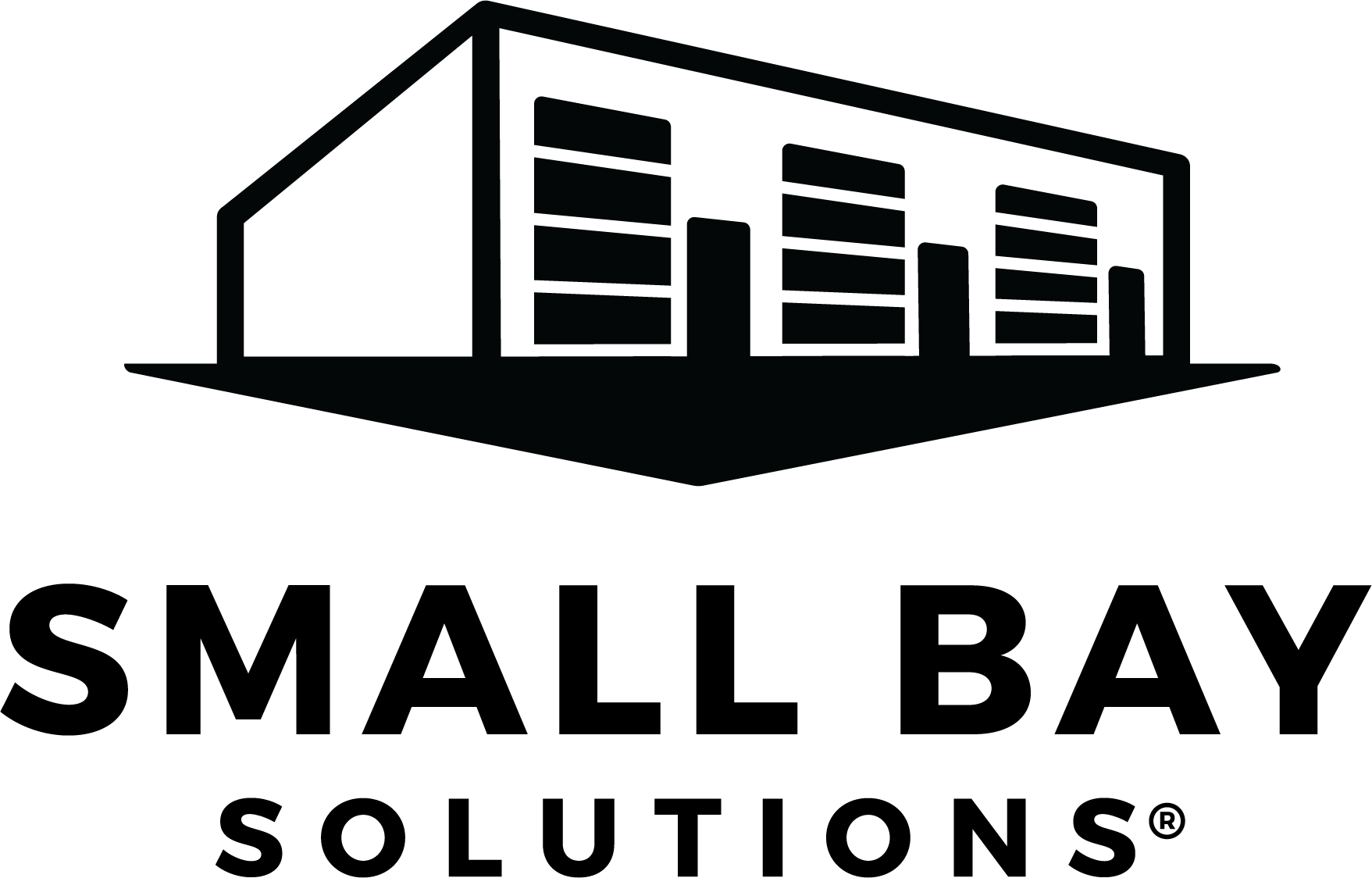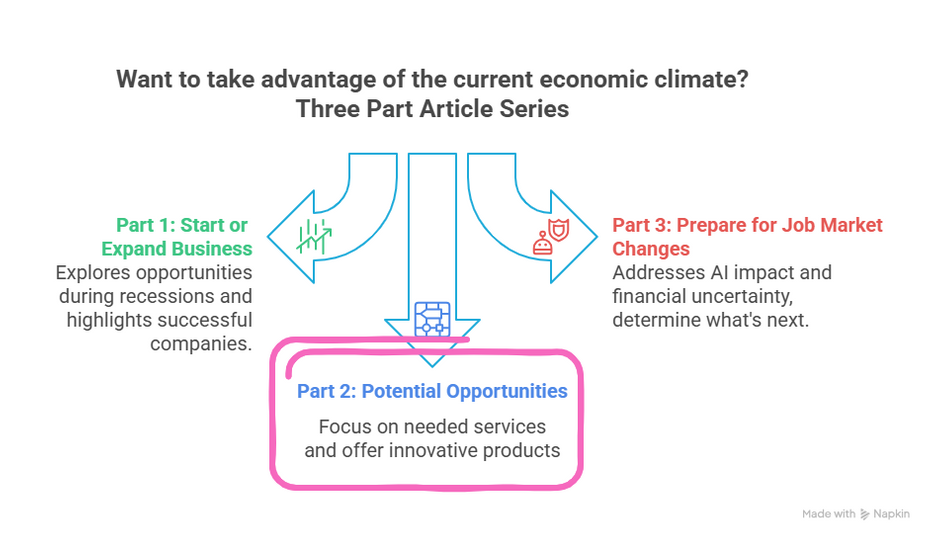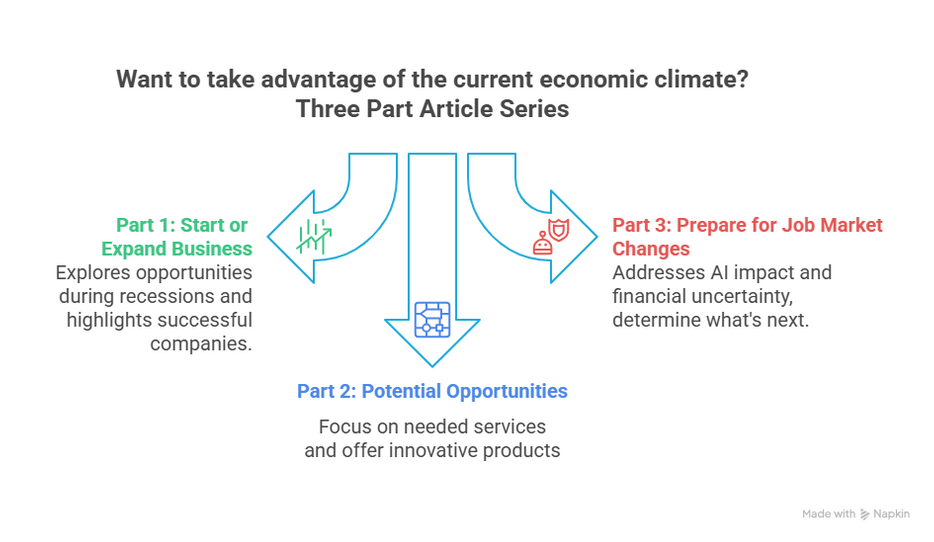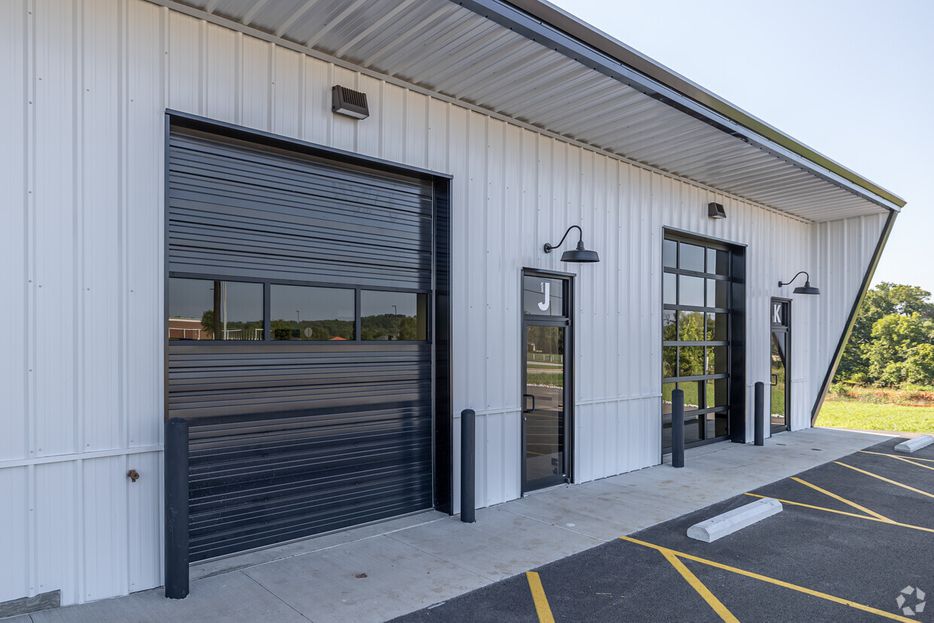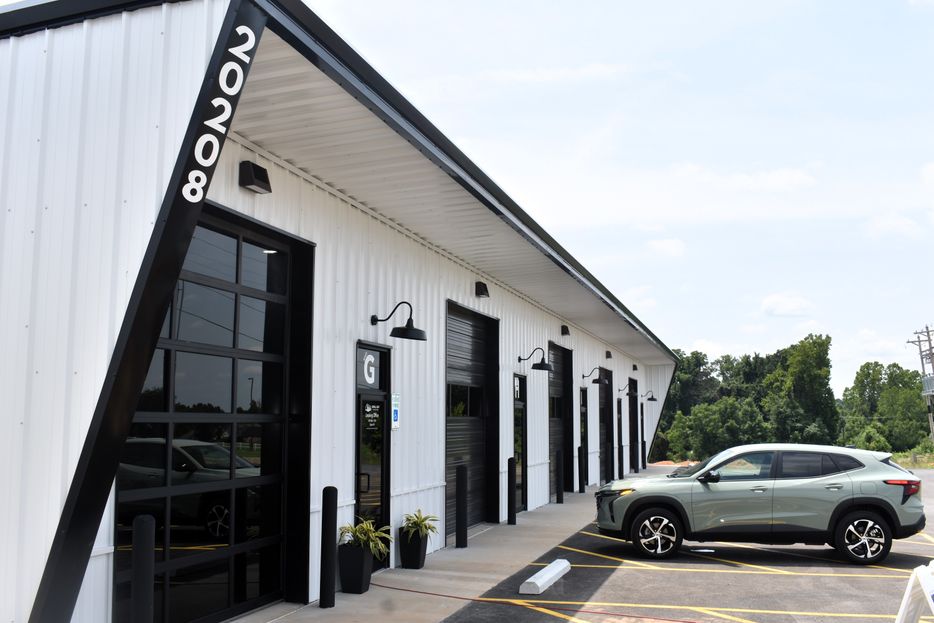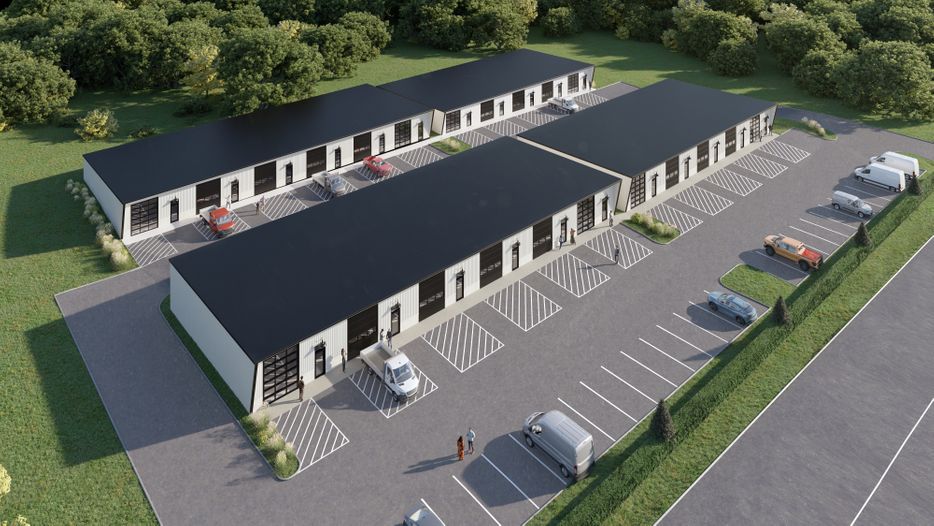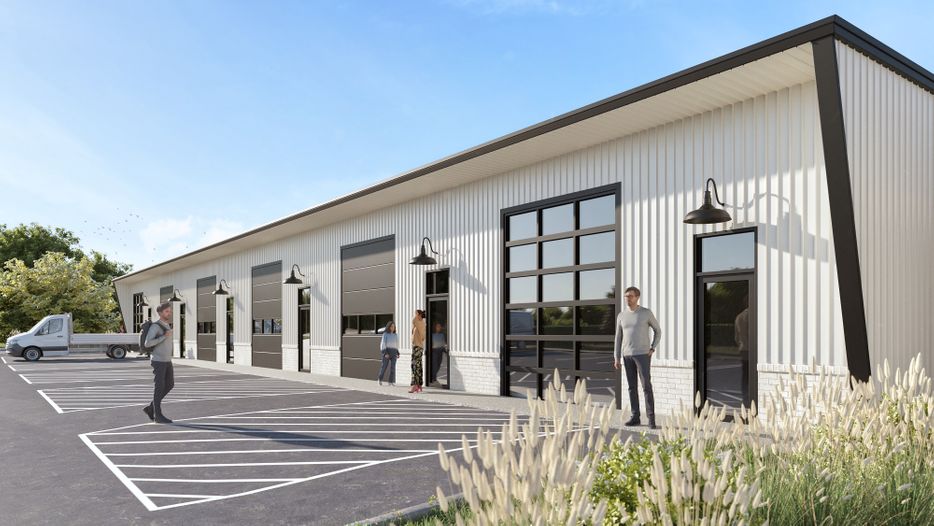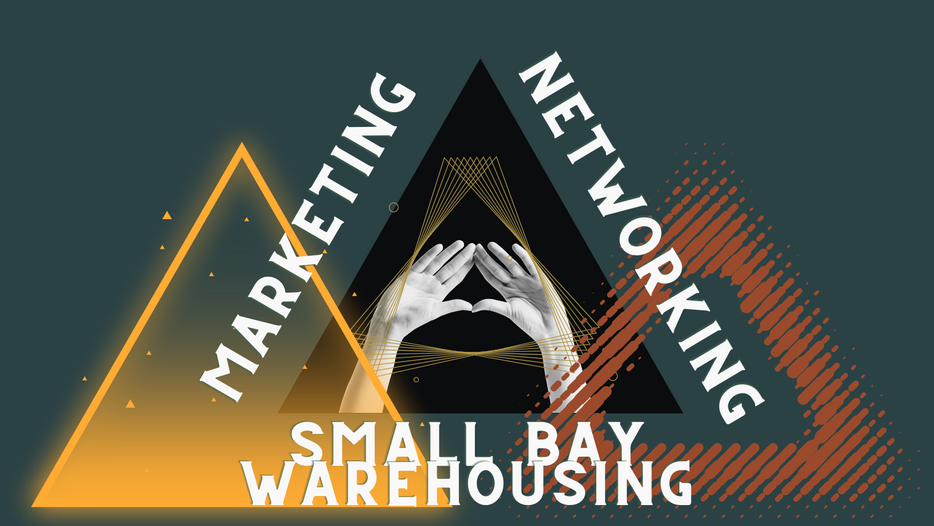Blog
Small Business Thoughts...
Part 3: The Changing Job Market, AI, and Why Now Is the Time to Prepare
Let’s just say it—the job market is changing, and fast. If you're like most people, you're probably hearing about layoffs, AI, inflation, political chaos, and global uncertainty—all in the same week—and thinking, what in the world am I supposed to do with this information? You're not alone, and you're not crazy. This is a lot.
So, let’s talk about it honestly. Because the goal of this series has always been to shift from panicked to prepared.
Here’s some surprisingly good news: According to the U.S. Chamber of Commerce, “America is facing a worker shortage crisis.” In Arkansas, for example, there are 69 workers for every 100 open jobs. So yes—opportunities exist. But the real question is, are they opportunities you actually want?
If you’re in a job that doesn’t feel stable, or worse, doesn’t feel meaningful, this might be your sign to start preparing for what’s next. That might mean finally diving into that side hustle idea or simply upskilling to become the most AI-savvy person in your office.
morePart 2: What Types of Businesses Should Be Expanding Right Now
If you didn’t catch Part 1 of this series, go back and give it a quick read—it’s a fast, energizing look at who has succeeded during downturns, recessions, and even pandemics. Today, I want to take a moment to celebrate a real-life example: one of our very own tenants at Small Bay Solutions® who leaned into uncertainty and came out thriving.
Bryan McCoy of McCoy Custom Carts shared at his ribbon-cutting last week that he turned his $1,000 COVID relief check into a $10 million business. With his third location now open here in Springdale, Arkansas, it’s clear he made his money work for him when most people were simply trying to get by. Bryan did exactly what every aspiring entrepreneur should do during uncertain times: put your head down and turn up the heat on your drive to build better options, better jobs, and better lives—for your family and your community.
So, maybe now you’re convinced that starting or expanding a business during a volatile time is possible. But what kind of business should it be? Keep in mind Small businesses account for 40% of the our nation's economic output and 45.9% of U.S. workers are employed by small businesses (U.S. Small Business Office of Advocacy).
morePart 1. Recession-Proof Your Business: A 3-Part Series on Starting, Expanding & Thriving During Uncertain Times
The old adage, “There’s no time like the present,” might feel misplaced in a moment like this, when the political and economic climate is uncertain at best. But the truth is: the time is now.
As a real estate agent, I’ve seen the market recede and surge. I know many investors have been waiting for this moment—when competition cools, prices adjust, and opportunities emerge. While we're not fully there yet, particularly in high-demand regions, we're getting close. This isn’t a permanent moment, it’s a timeframe. The question is: will you be the one sitting on the sidelines, or the one stepping in?
History has shown us that some of the world’s most iconic companies were founded during economic downturns. These businesses didn’t just survive—they thrived because they solved urgent problems, responded to shifting consumer needs, and weren’t afraid to innovate when it mattered most. Here's a list that AI helped me compile:
Companies Born in a Recession:
- General Electric (founded in 1892 during the Panic of 1893)
- IBM (founded during the 1911 recession)
- Disney (launched in 1929 at the start of the Great Depression)
- Hewlett-Packard (founded in a Palo Alto garage during the Great Depression, 1939)
- FedEx (founded in 1971 during the 1973 oil crisis)
- Microsoft (founded in 1975 during a recession)
The Secret to Brand Awareness? Here’s How Small Bay Solutions Made It Happen
It happened today—a true brand awareness moment for Small Bay Solutions!
Yes, I’ve had people say, "Oh yeah, I’ve heard of you!" or "I’ve seen your logo before." But today was different. A potential tenant walked in, already familiar with Small Bay Solutions, not just as a warehouse space but as a hub for small business growth in Northwest Arkansas. She already knew about our business workshops, networking events, and tenant support services.
Her husband had found us online, but when they visited in person, it all clicked. That’s the power of brand awareness!
This moment wasn’t luck—it was the result of consistent branding, local engagement, and strategic marketing. And for any small business owner wondering how long it takes to build brand recognition, let me share what I’ve learned.
How Long Does It Take to Build Brand Awareness?
For a DIY marketer like myself, it took me since October 2023—when Google first indexed my website—to start seeing real traction. That's 17 months or 74 weeks and 12 days, not that I'm counting. And according to marketing research, it takes 5 to 7 impressions before someone truly remembers a brand. Even better, studies show that consistent brand presentation can increase revenue by 23% (Forbes)!
moreWhy 2025 Might Be the Year for Your Business to Move into a Commercial Space
In today’s digital age of online marketing, virtual operations, and viral branding, it’s easy for business owners to focus solely on a virtual presence. However, there’s a time and place to consider taking that next step: moving into a physical space to anchor your business and build local traction. For many, the idea of leasing a commercial space in today’s economy may feel intimidating, even unattainable. But if you’ve been hesitating, it may be time to reconsider. Let’s explore why.
The Real Impact of a Physical Location on Revenue and Customer Retention
Studies have shown that having a physical presence can dramatically impact revenue and customer loyalty. According to the U.S. Small Business Administration’s Office of Advocacy, businesses with physical locations generate, on average, 37% more revenue than online-only operations. And it’s not just about sales: data from Harvard Business Review reveals that businesses with a brick-and-mortar location see 30% higher customer retention rates. These figures point to the undeniable value a physical location can offer in terms of revenue and building a loyal customer base.
moreExploring the Entrepreneur vs. Business Owner Dynamic
Yesterday, while showing Victoria Dickerson from Startup Junkie around our space at Small Bay Solutions, we delved into the topic of entrepreneurs versus business owners and how each term draws a certain type of audience and connotation. This conversation sparked some deeper thoughts that I wanted to share with you today.
Why "Business Owner" Feels Safer Than "Entrepreneur"
For many small business owners, the word “entrepreneur” conjures images of high-risk ventures, wild innovation, and uncertainty. Saying you're an "entrepreneur" can feel like you're admitting to taking chances or doing something untested and risky. In contrast, calling yourself a "business owner" implies stability, a proven model, and a sense of security—qualities that are appealing when trying to establish trust with clients, investors, and even yourself.
The Psychological and Generational Impact
The distinction between these terms isn’t just semantic; it impacts how business owners see themselves and their companies. A "business owner" might focus on maintaining steady growth, managing day-to-day operations, and ensuring long-term sustainability. On the other hand, "entrepreneur" suggests someone who is always seeking new opportunities, pushing boundaries, and not afraid of the potential for failure.
moreJoin the First-of-Its-Kind Event Business Hub in Northwest Arkansas: Transform Your Event Related Business Today
Are you looking to expand your event business into one of the fastest-growing regions in the United States? Imagine having your brand in a location that not only offers flexibility but also places you in a thriving community designed for success. Introducing Small Bay Solutions—Northwest Arkansas's premier event business district.
Why Choose Northwest Arkansas?
Northwest Arkansas (NWA) is quickly becoming a hotspot for business growth and development. NWA is now ranked as the 18th fastest growing region in the US. With a booming population, a strong economy, and close proximity to major cities like Little Rock, Tulsa, and Springfield, NWA offers a unique opportunity for event professionals looking to expand their reach. The region's vibrant community is hungry for top-tier event services, and there’s no better time than now to establish your presence here.
What We Offer at Small Bay Solutions
At Small Bay Solutions, we're more than just a commercial space provider—we're building a collaborative community for event industry professionals. Our facility features 33,000 square feet of commercial flex space, designed to meet the diverse needs of growing businesses. Whether you need 1,500 or 6,500 square feet, we have the perfect space for you. But the benefits don’t stop at square footage.
moreWhen an Image Comes to Life
No description needed, the images speak for themselves.
moreUnderstanding Growth: Scaling Your Business in Response to Population Expansion
Understanding Growth: Scaling Your Business in Response to Population Expansion
As a small business owner, navigating growth opportunities amidst a burgeoning population in your region can be both exhilarating and challenging. While we were living in Denver we watched the population grow by almost one million people in 20 years. With each new resident came increased demand for goods and services, presenting a prime opportunity to scale businesses and expand reach. However, not all the small businesses were thriving with that profound increase in clients and demand. It's essential to recognize that population growth brings about various implications, including shifts in home affordability and the financial needs of your workforce.
Here's why scaling your business is not just about meeting growing demand, but also about strategically addressing the broader impact of population expansion:
Meeting the Demand for Housing: As the population in your region grows, so does the demand for housing. This can lead to rising home prices and decreased affordability for residents. As a business owner, understanding these dynamics is crucial, as they directly impact the financial well-being of your employees. By recognizing the challenges of home affordability, you can implement strategies to support your workforce, such as offering flexible work arrangements so employees can live further from your location or if that's not possible or considering the location of your business.
more
Understanding Commercial Spaces for Rent: Exploring Versatility in Small Bay Solutions
Understanding Commercial Spaces for Rent: Exploring Versatility in Small Bay Solutions
In the world of commercial real estate, the landscape of available spaces for rent spans a diverse spectrum, each term signifying unique attributes and functions. Small Bay Solutions, situated in Northwest Arkansas, stands out as a versatile location that encapsulates various categories, catering to the needs of diverse businesses. Let's delve into the different terms for commercial spaces for rent and explore how they intersect within this dynamic space.
1. Warehouse Spaces: Warehouses are designed primarily for storing goods, merchandise, or materials. Traditionally, they have high ceilings and expansive floor areas. While typically associated with storage, warehouses today are increasingly flexible, often doubling as distribution centers or even retail spaces. Small Bay Warehousing is a subset of this category which is defined as anything from 1,500 square feet to 70,000 square feet.
2. Flex Space: Flex spaces blend features of office, warehouse, and sometimes retail spaces into one. They offer adaptability, allowing businesses to customize areas for office work, storage, or even light manufacturing. These spaces cater to various business needs, offering versatility in layout and usage.
moreSmall Bay Solutions: The Location for Small Business Success in Northwest Arkansas (NWA)
Small Bay Solutions: Empowering Small Business Success in Northwest Arkansas (NWA)
In the bustling retail landscape of Northwest Arkansas (NWA), finding the ideal space for your business's growth is crucial. Welcome to Small Bay Solutions – a sophisticated solution tailored to elevate your retail endeavors to new heights.
Small Bay Solutions prides itself on offering more than just warehouse rental space. Our facility stands as a purpose-built hub uniquely designed to cater to the diverse needs of small businesses. Located strategically in the heart of NWA, our units are meticulously crafted to provide the perfect environment for your business to flourish.
Differentiating Factors
Customized Units: Our spaces are not one-size-fits-all. We offer customizable units, ensuring that your business finds a space that perfectly aligns with its requirements. Units begin at 1500 square feet to 6000 square feet.
Advanced Infrastructure: From modern amenities like private bathrooms, individual storefront doors and glass garage doors to robust infrastructure like individually metered utilities, our facilities are equipped to meet the highest standards, maintaining professionalism and functionality while maintaining affordability.
more
Update for Small Bay Solutions - Paving the Way for Your Success
Small Bay Solutions - Paving the Way for Your Success
Small Bay Solutions is thrilled to share exciting updates and insights into our mission to build a robust system of services and resources for our tenants. As we continue to expand and evolve, we're dedicated to ensuring that small business owners have everything they need for their journey to success.
1. Construction Progress: Building Your Future
Our work on facility construction is right on track. Extensive dirt work is complete, and we're excited to see the underground plumbing taking shape. Concrete forms are now rising to create solid foundations for the amazing spaces where your businesses will flourish.
2. Community Connections: Bringing Resources to You
Every day, we're out in the community, forging partnerships to bring valuable resources to Small Bay Solutions. Our vision is clear - you shouldn't have to go hunting for resources; we're here to bring them to your doorstep. We're committed to making your entrepreneurial journey as seamless as possible.
3. Navigating the Tech Landscape: Your Technology Allies
moreSmall Bay Warehousing, Marketing, and Networking: The Triad of Small Business Success
In the dynamic world of small business ownership, mastering the synergy between small bay warehousing, marketing, and networking is a surefire way to propel your venture towards success. In this brief guide, we'll navigate the seamless partnerships between these three essential pillars of small business growth, revealing how they can harmonize to create a thriving enterprise.
Part 1: Small Bay Warehousing: The Foundation of Efficiency
Small bay warehousing serves as the bedrock upon which your small business can build its operations. These compact storage facilities offer several advantages that can be instrumental in your success.
Cost-Efficiency and Scalability
Small bay warehousing is known for its budget-friendly nature. As a small business owner, this cost-effectiveness allows you to allocate your resources more efficiently, directing capital towards other critical areas like marketing and networking. Additionally, these spaces are highly scalable, ensuring that as your business grows, your warehousing needs can easily expand with it.
Location and Accessibility
moreProtecting Your Brand: When Do You Need to Trademark Your Business Name
Your business name is more than just a label; it's a valuable asset that represents your brand's identity and reputation. As a small business owner, knowing when to trademark your business name is crucial for safeguarding your intellectual property and establishing a distinctive presence in the market. In this blog post, I'll explore the key factors that determine when you should consider trademarking your business name. At Small Bay Solutions we have already gone through the trademark process and are excited to share what we learned.
1. Business Growth and Expansion
One of the primary indicators for trademarking your business name is growth and expansion. As your business gains momentum and starts reaching a broader audience, protecting your brand becomes increasingly important. A registered trademark provides exclusive rights to use the name within your industry and geographic region, preventing others from using a confusingly similar name that could dilute your brand's reputation.
2. Unique and Distinctive Name
If your business name is unique and distinctive, it's a strong candidate for trademark registration. Names that are inherently distinctive and not commonly used in your industry are more likely to receive trademark protection. Avoid generic or descriptive names that may be challenging to trademark.
moreShould you buy an existing Small Business?
Pros of Buying an Existing Small Business:
Purchasing an existing small business brings several advantages to the table. One of the most significant benefits is inheriting an established brand and reputation. This means you don't have to start from scratch in building customer trust and loyalty. The existing customer base is another valuable asset. You won't need to spend time and resources attracting initial customers; instead, you can focus on retaining and expanding the existing clientele.
Financially, an established business usually means immediate cash flow and revenue generation. This helps you cover operational costs, manage loan repayments if used for the purchase, and potentially invest in growth initiatives. Additionally, an existing business often comes with a trained workforce. These experienced employees already understand the operations, which can save you time and resources compared to hiring and training new staff.
Established businesses typically have proven systems and processes in place. These efficient workflows can lead to cost savings and smoother operations. Lastly, access to existing suppliers and relationships can give you an advantage in securing favorable terms and pricing due to the business's established market presence.
moreNavigating the Crossroads: Deciding to Transition from a Corporate Job to Entrepreneurship
Deciding whether to leave a corporate job to start your own small business is a significant crossroads that requires a comprehensive evaluation of various factors. Firstly, assess your passion and vision for the business idea. A deep sense of enthusiasm and a clear vision of where you want to take the business can serve as powerful motivators to overcome challenges. Does the business feel like "work" or does it feel energizing? If you feel like the work will drain you and be similar to your existing job, then you haven't found the right business yet.
Conduct thorough market research to understand the demand for your product or service and the competitive landscape. A viable market with untapped opportunities increases your chances of success. Equally important is evaluating your risk tolerance. Entrepreneurship involves uncertainties, financial risks, and potential setbacks. Reflect on your comfort level with these risks and consider having a financial safety net to navigate unexpected situations.
Financial preparedness is critical. Starting a business requires initial investments, ongoing operational expenses, and often limited income during the early stages. Crafting a detailed financial plan and ensuring you have sufficient funds to sustain both your personal and business needs is crucial for a smooth transition.
moreElevating Your Business: The Benefits of Operating Outside Your Home Space
While running a small business from the comfort of your home can offer convenience and cost savings, there are compelling reasons to consider moving your operations outside your house. Let's explore why your small business might benefit from having a separate physical space:
1. Professionalism and Credibility: Having a dedicated business location enhances your professionalism and credibility in the eyes of clients, customers, and partners. It establishes a clear boundary between personal and business life, lending legitimacy to your brand.
2. Separation of Work and Personal Life: Running a business from home blurs the lines between work and personal life, making it challenging to switch off and unwind. A separate workspace fosters a healthier work-life balance and prevents burnout.
3. Increased Productivity: Home environments can be filled with distractions, from household chores to family responsibilities. A dedicated workspace allows you to focus solely on business tasks, leading to increased productivity and efficiency.
4. Meeting Clients and Partners: Hosting meetings with clients or partners at home might not be the most professional setting. A designated business location provides a more suitable environment for meetings, presentations, and collaborations.
moreReady for Growth: 5 Signs It's Time to Expand Your Small Business Space
As your small business gains traction and momentum, it's natural to outgrow your initial workspace. Recognizing when to expand your operational space is crucial for sustaining growth and maximizing potential. Here are five telltale signs that it's time to consider expanding the space you're working out of:
1. Space Constraints: When your current workspace feels cramped, disorganized, or insufficient to accommodate your team, equipment, or inventory, it's a clear indication that you've outgrown your current environment.
2. Increased Demand and Customer Flow: If your business experiences a surge in customer foot traffic, online orders, or appointment bookings that your current space can't comfortably handle, it's a strong indicator that expansion is necessary.
3. Overwhelmed Operations: When your staff members are constantly bumping into each other, struggling to find workspace, or battling for resources, it's a sign that operational efficiency is compromised and expansion is needed.
4. Diversified Offerings: If your business has expanded its product or service offerings, the additional space might be required to accommodate new equipment, storage, or specialized work areas.
moreCheers to an Unmissable Night: Join Us at the Startup Crawl with Sister Hazel Live!
Are you ready for a night that's a perfect blend of innovation, great brews, and sensational music? We're thrilled to share the exciting news – we've been invited to participate as a featured startup at an upcoming event hosted by Startup Junkie that promises to be nothing short of extraordinary!
What's Brewing: Get ready to raise a glass and savor the finest craft beers from NWA as you mix, mingle, and connect with a community of fellow entrepreneurs. From hoppy ales to smooth lagers, there's a flavor for every palate. Whether you're a seasoned beer aficionado or just looking to explore new tastes, this event has you covered.
Get Your Tickets: Don't miss your chance to be part of this unforgettable experience! Secure your tickets now to guarantee your spot at this exclusive gathering. With the chance to sample an array of carefully crafted beers and be part of an exciting startup showcase, this is an event that promises to be the highlight of the season. https://www.startupjunkie.org/startupcrawl
moreEnhancing Customer Experience: Strategies for Lasting Success
In the dynamic realm of business, customer experience (CX) stands out as a cornerstone of success. Providing a memorable and positive interaction with your brand can foster customer loyalty, generate referrals, and set you apart from competitors. Here are some comprehensive strategies to elevate your customer experience and cultivate a thriving business:
1. In-Depth Customer Understanding: Embark on a journey of understanding your customers on a deeper level. Develop buyer personas to grasp their demographics, preferences, pain points, and behaviors. This insight will guide you in tailoring your offerings to their unique needs.
2. Seamless Online Interaction: The digital landscape demands a seamless online experience. Ensure your website is user-friendly, responsive across devices, and intuitively navigable. For e-commerce, simplify the checkout process, and provide compelling content that reflects your brand identity.
3. Personalization as a Priority: Implement personalized strategies that demonstrate your commitment to each customer. Craft emails based on their preferences, recommend products they might be interested in, and use their names in interactions. This personal touch enhances engagement.
moreThe Power of Connections: How Small Businesses Can Thrive Through Networking
In the dynamic world of business, connections are invaluable. For small businesses, establishing and nurturing a network of other small businesses can be a game-changer. Collaborative efforts and shared resources can lead to mutual growth and success. Let's delve into how a small business can benefit from a network of other small businesses:
1. Collective Knowledge and Experience: Networking with other small businesses allows you to tap into a wealth of collective knowledge and experience. You can learn from others' successes and failures, gaining insights into various aspects of running a business, from marketing strategies to operational efficiencies. These shared experiences can help you avoid common pitfalls and make informed decisions.
2. Access to Resources: Small businesses often have limited resources, but when combined through networking, these limitations can be overcome. Partnering with other businesses can lead to shared resources, such as bulk purchasing discounts, shared marketing campaigns, or jointly funded events. This collaborative approach allows you to achieve economies of scale that might not be possible on your own.
more5 Essential Considerations When Renting a Commercial Space for Your Small Business
Are you a budding entrepreneur looking to establish your small business in a physical location? Renting a commercial space is a crucial decision that can significantly impact the success of your venture. Whether it's a retail store, office, or restaurant, choosing the right space involves more than just finding a suitable location. Here are five essential considerations to keep in mind when renting a commercial space for your small business:
1. Location, Location, Location: The old adage holds true – location is paramount. The choice of location can make or break your business. Consider factors like foot traffic, accessibility, visibility, and the local demographics. A busy street might attract more potential customers, but it could also come with higher rent costs. Evaluate whether the location aligns with your target audience and the nature of your business.
2. Budget and Lease Terms: Setting a realistic budget is crucial. The cost of renting a commercial space isn't limited to the monthly rent alone. There might be additional expenses like utilities, maintenance, taxes, and insurance. Before signing a lease, thoroughly understand the terms and any hidden costs involved. Negotiate the lease duration – a shorter lease might provide flexibility but could also lead to more frequent rent hikes.
more